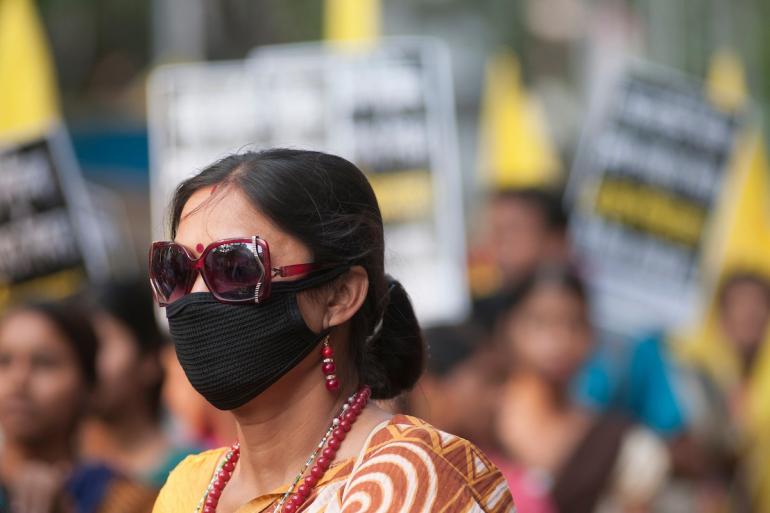Attacks on Christian women in India: A ‘new form of persecution’

In a jam-packed hospital ward, 43-year-old Sushma Devi was lying on an old bed, murmuring a prayer while trying to ignore the pain from a wound to her head.
A week ago, Devi and three other Christian women were attacked by a mob of Hindu hardliners in her village near the north Indian city of Faridabad.
“Some unknown people splashed the main gate of our house with contaminated water,” she told LiCAS.news.
“When we objected to it, they began hurling abuse and even tried to attack me, so I went to the police station to complain,” said the married mother of a 6-month-old child.
Devi said the police assured her they would act against those causing trouble and she was told to go home.
“I did what the police asked me to do. I went home with the hope that no one will hound us again,” Devi said.
But the next day a mob attacked her house and dragged Devi her out. When other Christians living nearby tried to intervene, they were likewise attacked.
“They started beating us, thrashing us and dragging us out in the streets. There were three other Christian women who are my neighbors who also were attacked,” Devi said. “The attackers kept telling us that we Christians will not be allowed to live here and that only killing us is the solution,” she recalled.
A rock hit her in the head and she was left unconscious.
“It’s a week since the incident and I still get unconscious sometimes. I have four stitches in my head,” Devi said.
The other three women were also beaten badly she said, adding they suffered leg, forehead and head injuries.
Rajesh Gupta, a Protestant pastor, tried to intervene in the attack but he and his family ended up being assaulted themselves.
“I had with me my wife and my daughter. We all were beaten up and abused,” Guptor said.
“The mob kept saying that we Christians have contaminated Hindu society and we were told the time for us to be prepared for punishment has come,” he said.
In her village, Devi said there are several Christian homes located in close vicinity to each other.
“Some Hindus in the village have been holding personal grudges against us for years,” Devi said. “They deliberately call us to attend Hindu prayer meetings at local temples and when we don’t attend them, they target us in various ways,” she said.
“Recently, a ‘puja’ (Hindu congregational prayer) was held in the village. We didn’t attend that. Soon after, a few fanatic Hindus warned us of dire consequences,” she said.
Christian activist Joshua Lal, who works in Devi’s village, told LiCAS.news that some Hindu hardliners in the village have been making various excuses to target Christians.
“The severity of the problem could be gauged by the fact that there is a well-planned mechanism being adopted by these groups through which they have now begun targeting Christian women,” said Lal.
Shibu Thomas, founder of Christian rights group Persecution Relief, said that amid an upsurge in anti-Christian attacks by the religious fanatics, women have been specifically targeted.
Thomas said that in the first seven months of this year more than 51 hate crime cases targeting Christian women have been recorded.
“Five Christian women have been raped this year and there are scores of attacks against them which often go unrecorded. This is a new trend to ostracize the Christian community and instill fear at large,” Thomas told LiCAS.news.
Allen Francis, a Christian activist told LiCAS.news that the latest report from non-profit Open Doors stated that molestation, rape, physical abuse against Christian girls and women have become new forms of persecution in India.
Francis said police are increasingly showing a biased approach favoring the majority when it comes to protecting minorities.
Hindus form 80 percent of India’s population of 1.3 billion. Muslims account for 14 percent while Christians comprise 2.3 percent. - LiCAS.news
Radio Veritas Asia (RVA), a media platform of the Catholic Church, aims to share Christ. RVA started in 1969 as a continental Catholic radio station to serve Asian countries in their respective local language, thus earning the tag “the Voice of Asian Christianity.” Responding to the emerging context, RVA embraced media platforms to connect with the global Asian audience via its 21 language websites and various social media platforms.













